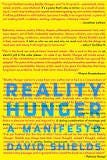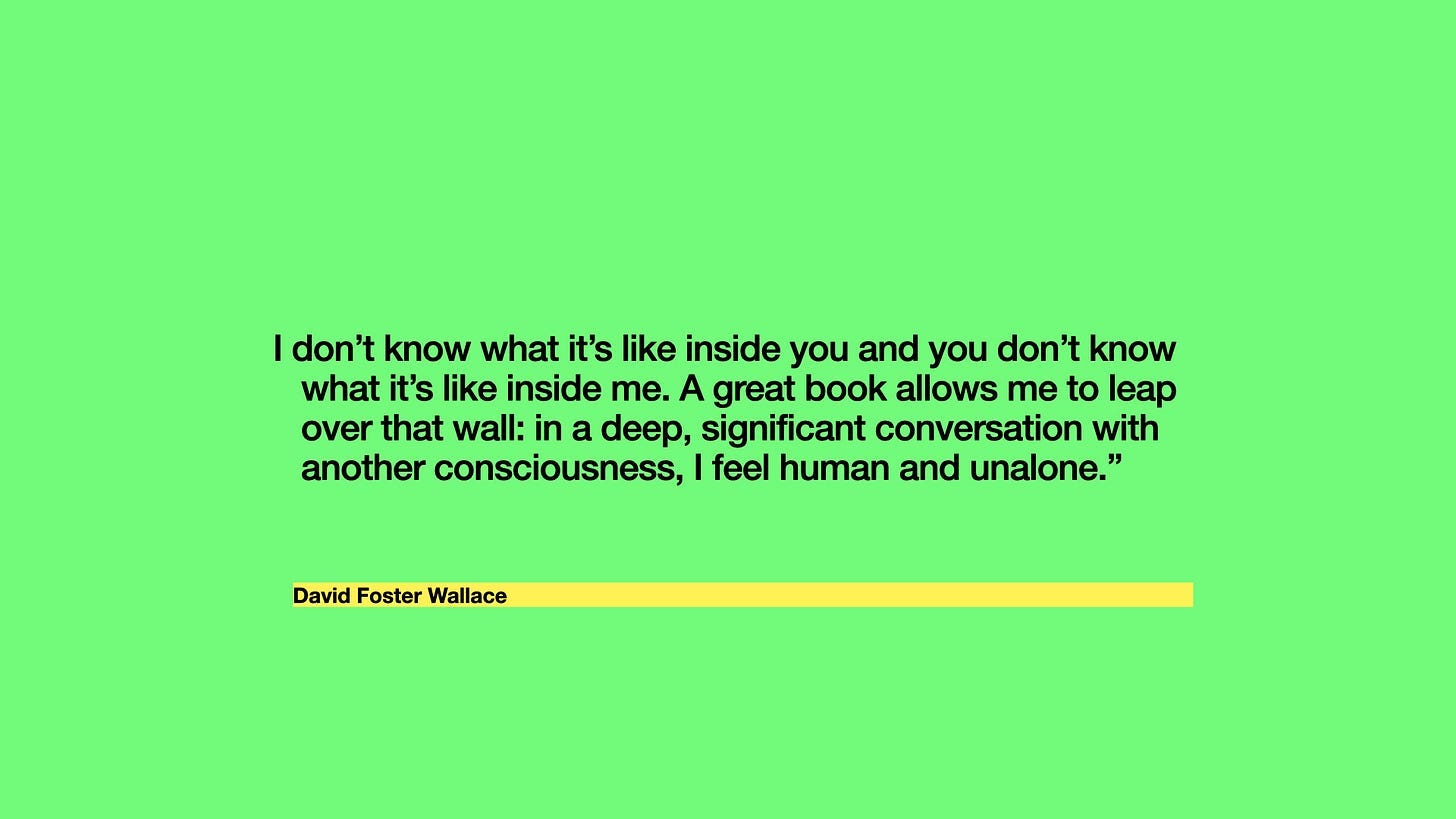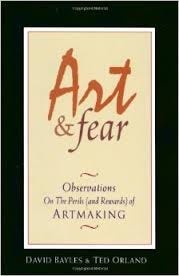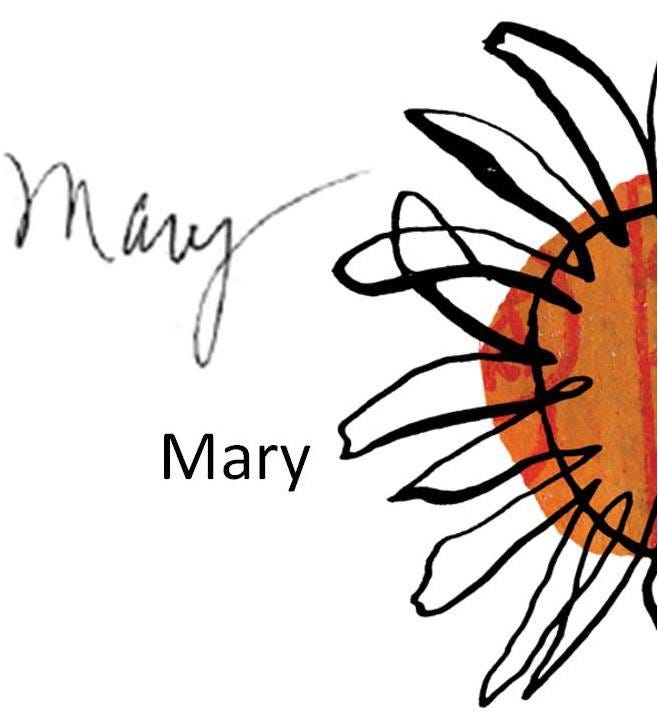Autobiography and Fiction: Get ready for Doerr's Stones for Ibarra
Preamble to Lesson 16 of Write it! How to get started
Because Stones for Ibarra
deals with a fictionalized account of Harriet Doerr’s life, let’s talk about how autobiography works in fiction (still time to find and read the library book or go to Amazon where you may buy the novel used—right column—for about $4).
You know the line: Truth is stranger than fiction? I’ve got a twist on that. Here’s what I think I’ve learned through the writing of three books and a fourth in process: The fictional account of my stories may have greater emotional truth than the factual ones.
As memoir has increased in popularity1 both in books and movies—“A True Story,” the familiar tag, fiction, written close to the bone, may provide the reader or film viewer with a deeper look into the life and soul of the writer.
What do you think? Tell me!
David Shields argues for self-revelation and against the novel that is not self-revelatory in Reality Hunger2 through a series of quotes, occasionally his own—unabashedly without full attribution.
Here’s John Berger3
And David Foster Wallace4
Do you think a serious writer can’t help but reveal even as the lie of fiction operates?
Lee K. Abbot,5 author and teacher, puts the issue succinctly:
I’ll compare my novel and my memoir.
I put aside my novel Who by Fire (reviews and more here) when I was close to finished. My husband, after 22 years of marriage, said, oh-so-Greta-Garbo, “I need to live alone. This event stopped me in my tracks—and eventually, I blogged my life while I was living it. That blog was picked up by a publisher and became the memoir (Re)Making Love. That book is a love story but oddly one that fiction would probably not find credible.
Then when I finished the novel and read Who by Fire aloud in an NPR recording studio for the audible.com version, I discovered my own book as if for the first time and realized I’d written the novel to find the man I must have known on the unconscious level I was losing. So, self-revelatory?
Do you think good fiction, meaning you know while you’re reading that the writer is risking her life, goes to this place of hard truth in a way that memoir rarely can because if its hold on the so-called truth?
In their book Art and Fear, David Bayles and Ted Orland explain our resistance to fiction—or to any art—this way:
“[T]he prevailing premise remains that art is clearly the province of the genius (or, on occasion, madness). … [A]rt itself becomes a strange object—something to be pointed to and poked at from a safe analytical distance. To the critic, art is a noun.
“Clearly, something’s getting lost in the translation here. What gets lost, quite specifically, is the very thing artists spend the better part of their lives doing: namely, learning to make work that matters to them. … [W]hat we really gain from the artmaking of others is courage-by-association. Depth of contact grows as fears are shared—and thereby disarmed—and this comes from embracing art as process, and artists as kindred spirits. To the artist, art is a verb.”6
What do you think about this? I changed the title character’s name to Olivia in each of The Woman Who Never Cooked stories7 for the second edition. The allusion is to that character in Shakespeare’s Twelfth Night, the comedy that takes center stage in the story “Madness and Folly” about my father after he broke his hip—in real life. When the first edition of the ms. was published, all the main characters had different names.
I thought the name change would help connect all the stories—perhaps a hint to self-revelation with the ruse of a name from the Shakespearean comedy of disguises?
In the fiction, I used food and adultery as metaphor for the grief I bore through my mother’s, my father’s, and my sister’s illnesses and deaths.
I was writing direct, tough, purposefully artful exaggeration of autobiography. Curiously, the book only achieved publication after I’d added two of three memoir pieces that had been published in literary magazines. All the stories were published first that way. See my essay,
The memoir stories in the collection are: “Rugalach,” a tribute to my mother; “Losing,” a tribute to my father; and the eponymous closing story “The Woman Who Never Cooked.”
Are the other eight stories more powerful, more truthful than the memoir—with the exception of “The Woman Who Never Cooked”? I say this about the last because it’s written in third person like a fairy tale. The opening line is, “There once was a woman with 327 cookbooks who never cooked”—so it hardly seems like memoir. Through food, this true-to-its-core memoir tells the story of my mother’s, my father’s and my sister’s illnesses and the effect on living that their trials had on me.
I’ll use “The Burglar” that won two prizes and was published twice before appearing in the book of short stories to further explain.
You’d think me mad if I’d written this as memoir because the actual burglar is alive with his own point of view—something only fiction can achieve without madness.
Even Robin Hood and maid Marian appear in the story in an Internet game.
But the burglar himself is essential to express the love letter to my then-husband that I wrote in the aftermath of my mother’s death and a burglary that actually occurred in our home while we were away visiting both our children at college.
So where is the truth? Does Olivia actually desire the burglar? Does a burglar come to her home from his on Virgilia, a street near mine where the burglary actually occurred? Does it matter that I still own the locket that is in the burglar’s pocket and that the actual burglar chose all my other jewelry to steal and left behind the locket with its crude seal?
With that fact, the story wrote itself. Locket in hand that my mother had saved with a lock of her mother’s hair sealed inside, I went on the journey of discovery and the result, I hope, is heartfelt fiction.
Joyce Carol Oates explains the conundrum of literary fiction so often spurned for the “true” story when she asks, “Where do we get our ideas?”
“So much of literature springs from a wish to assuage homesickness, a desire to commemorate places, people, childhoods, family and tribal rituals, ways of life—surely the primary inspiration of all: the wish, in some artists clearly the necessity, to capture in the quasi permanence of art that which is perishable in life. Though the great modernists—Joyce, Proust, Yeats, Lawrence, Woolf, Faulkner—were revolutionaries in technique, their subjects were intimately bound up with their own lives and their own regions; the modernist is one who is likely to use his intimate life as material for his art, shaping the ordinary into the extraordinary.”8
My q’s for you: Isn’t fiction, the self-revelatory type, a much-misunderstood word? If we dismiss out of hand close-to-the-bone, self-revelatory fiction, don’t we miss truths that would otherwise remain unspoken?
Fiction, like all the arts that reveal through artifice, frees the unsayable. Why oh why would any of us who read or go to movies or art museums or photographic exhibits wish to miss that unsayable truth because we want the true story?
Here free?
Or
Or
Love,
Leigh Gilmore, author of The Limits of Autobiography, notes that “…[T]he number of new English language volumes categorized as ‘autobiography or memoir’ roughly tripled from the 1940s to the 1990s. (Analysis based on data from the Worldcat database).
David Shields, Reality Hunger, Alfred A. Knopf, 2010.
Ibid., ‘412’ John Berger, p. 139.
Ibid., ‘421,’ David Foster Wallace, p. 141,
Lee K. Abbott, “Fifty Years of Puerto Del Sol,” Puerto Del Sol, Vol, 50, 2015.
David Bayles and Ted Orland, Art and Fear, Capra Press 1997.
Mary L. Tabor, The Woman Who Never Cooked, Mid-list Press, 2006. Mary L. Tabor, The Woman Who Never Cooked, Outer Banks Publishing Group, 2013.
“Inspiration and Obsession in Life and Literature,” Joyce Carol Oates, New York Review of Books, August 13, 2015.














Wow, we vibe hard on this one, Mary. The seeds of your life that get planted in fiction are REAL and TRUE. Even if you think you're writing about totally fictitious people and situs, you're embedding your soul in it. The Abbot quote hit me hardest here. That's the thing about Writer's Life--it's just life, played out on the page.
"The fictional account of my stories may have greater emotional truth than the factual ones." I couldn't agree more... I think fiction allows us to explore complex emotions in a way that is tough to do in memoir. Self-censorship (is this too raw? too much? does it feel forced? TMI?) is hard to avoid (particularly when the narrative involves others). Then, there's the matter of feeling obliged to stick to the 'truth' even when we all know memory and truth-telling are notoriously fallible. Crafting a piece of fiction allows us to figure out the best way to actually make the point we want to make - particularly when that point is messy/emotional/drawn in shades of grey. In fiction, nobody can point to a passage/scene/conversation and say, "That's not how it happened." But if we do our jobs well, the reader should be able to imagine themselves as a fly on the wall and believe that the story unfolding could, in fact, have happened as we describe. When the scene/story/novel is emotionally-rich, what better way to connect with the reader on the other side of the page?